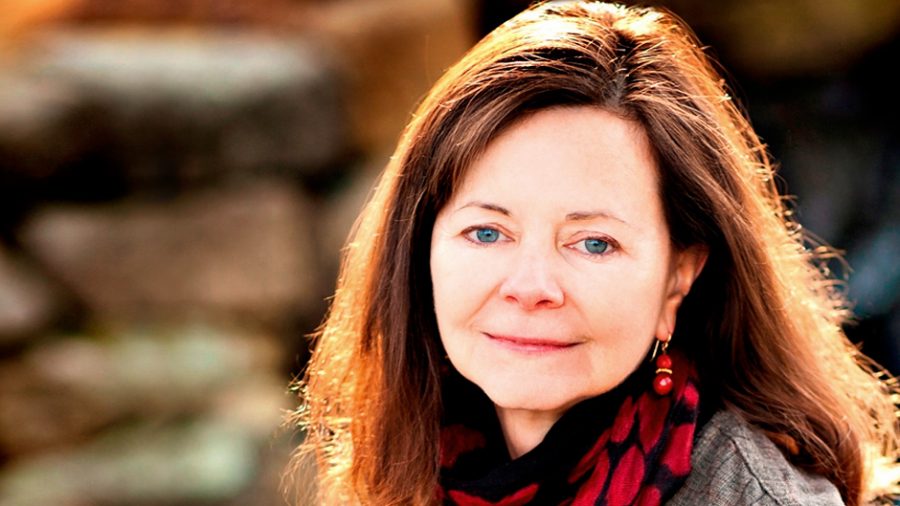Living Writers Features Geraldine Brooks “Year of Wonders”
Since its inception in 1980, Colgate’s nationally acclaimed Living Writers series has drawn Pulitzer Prize winners and rising stars of contemporary fiction. In a typical fall semester, select authors would be invited to campus for a public talk, book signing and to visit the Living Writers class, a course which examines contemporary fiction and writers who create it. Currently led by Associate Professor of English Jennifer Brice, the program has adapted to the unforeseeable circumstances of the pandemic and maintained the sense of community that the program seeks to create. On Thursday, Sept. 10, the first author of the semester Geraldine Brooks gave a presentation titled “The Art of the Historical Novel: Making Fiction from Fact” over Zoom and discussed her novel Year of Wonders with students, faculty and alumni.
Year of Wonders, the first of Brooks’s novels, takes the true story of a village in Derbyshire, England, during the Bubonic Plague and weaves fiction and fact into a heart-wrenching tale of fear, chaos and unexpected strength. The story is told from the perspective of a young widow and mother Anna, newly employed by a minister and his wife. The minister convinces the village to isolate itself from the outside world and wait out the plague, but the decision backfires and the community is decimated by the disease. Villagers, desperate and frightened to an unimaginable degree, turn to crime and superstition to make sense of the dangerous and unpredictable reality now facing them. Anna’s story, though fictional, is one that in many ways resonates with our own reality.
Brooks’s presentation provided a unique opportunity for attendees to gain a glimpse into the process of writing historical fiction. Explaining how her inspiration for the novel came not from seeking it out but by stumbling upon it, Brooks shared the story of one of her hiking trips. Exploring with her husband, Brooks happened upon the grave of the local minister’s wife that died of the plague, the etchings on the headstone erroneously carved and then replaced. It was in this moment that Brooks, marking the life and death of a woman just like her, was set on the path of creating the story that became her first novel.
“I like being in the line of tradition of telling stories. We imagine, we empathize, we put ourselves in somebody else’s shoes,” Brooks said.
Incorporating history with a narrative of her own creation provided Brooks with a unique opportunity to write about the past while adding a personal creative flair. According to Brooks, the research process was long and intense, but rewarding. One of her favorite parts of writing Year of Wonders was tracing facts and voices of lives that had been silent for too long. Combing through diaries, journals, records and other documents about life during the plague allowed her to create a vivid experience for the reader. One challenge was incorporating the vernacular of the time while still maintaining accessibility to a contemporary audience, a testament to the importance of striking the balance between historical accuracy and creative liberties in the historical fiction genre.
Although the novel was written almost 20 years ago about a town decimated by disease more than three centuries years ago, we can still find ways to place ourselves within the story and use it as a lens through which to view our individual responses to the pandemic.
Living Writers student junior Sophia Zanussi offered her take on the text.
“One of the most important morals of Year of Wonders is that you can either grow or be paralyzed by uncontrollable circumstances such as the plague. This message is especially powerful right now as we are living through a pandemic—what one could call a modern plague,” Zanussi said.
Thus, the questions that tormented the villagers now torment us. When will this end? How will it alter the course of our lives? What do I do? The Living Writers program’s start to the semester was a poignant one. While Geraldine Brooks’s discussion about her writing process shed light on the historical fiction genre, it also stressed the power of the values of the individual over the future of the community, something that is true both in Year of Wonders and at Colgate.









